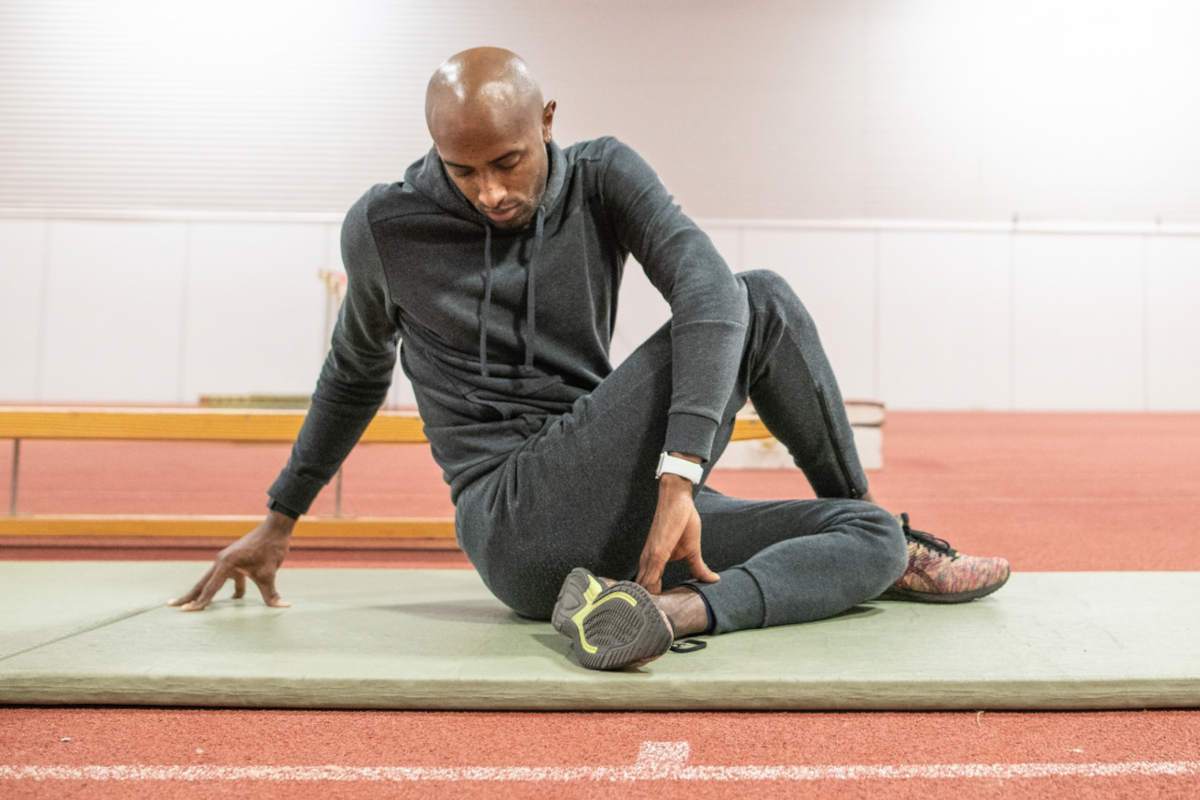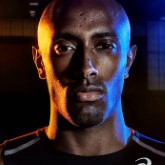Whatever the sport, most athletes have experienced pressure and have likely worried that it might negatively affect their performance. Olympic triple jumper Nathan Douglas shares his advice.
My first Olympics
I was 21 when I qualified for the Olympic Games, the biggest sporting spectacle on the planet.
I immediately felt the pressure – but as much as it sounds simple, having a plan was a massive part of doing myself justice and not being caught out with some of the things that can happen. I made some basic notes on what I wanted to do, like the technical aspects that I needed to focus on, and I did some work with a sports psychologist.
When I went to bed in the Olympic Village the night before my event, I remember thinking, no matter what happens tomorrow, enjoy it. Even in the warm-up, I was dancing along to my music because I was very conscious of living my dream.
Increasing pressure
After that, as my performances increased and I went to other championships, the pressure also increased. There were definitely times when the pressure was too much, but you do learn from that.
You have to accept that making mistakes is part of it – and if you fear failure, you're actually more likely to attract it, rather than thinking of what could go right. There's nothing to be concerned about if you have truly committed to your training and recovery strategies.
1. Control what is controllable
Whenever there is pressure, it's very easy to think of the elements that are outside of your control – thoughts about the weather, what your competitors are doing and if sponsors are going to be there, for example – but they just add more pressure, because there's nothing you can do about any of them.
What you can control is your training and mindset leading up to the competition. This will empower you and focus your mind on your performance.
2. Focus on what you enjoy
Fun and enjoyment are what get us into sport, but it's easy to forget that element when the pressure is high.
I've always been a bit of a perfectionist and there were times I allowed the pressure to get to me, because I wanted to perform well so badly; for myself, for my country, for the medals. It's a problem for a lot of athletes.
However, enjoyment is the biggest performance enhancer you can have. With the world's best sports performers, you can tell they enjoy what they do.
This is epitomised by Usain Bolt. As a youngster, he wasn't so carefree on the start line, but he found that a carefree attitude helped him get rid of some of the stress and the pressure – and consequently perform better.
3. Remember that pressure is a privilege
As you get good at whatever you're doing, pressure comes with it – but you're in a very privileged position; one you've dreamt of, and which plenty of people would love to be in. Remembering this mantra can help to reframe your situation.
The career of an athlete is short, so enjoy every single moment.

Maintaining a balance between sport and the rest of your life is important, including having time to unwind.
Finding sport-life balance
I took sport so seriously in the past that sometimes it worked against me. To cope with pressure, all athletes need time to unwind and to nurture other parts of their life.
Realising that sport is only one part of your life creates mental freedom and makes it more likely your results will improve, because you're in a relaxed state and not putting everything into one performance.
Spending time with friends and family is a massive part of this for me. They love you no matter what you're doing, how you perform, or whether you're an athlete or not.
Plan a post-sport life
Athletes should also contemplate life after their sporting career. It's another way to keep balance and perspective – and take the pressure off a bit.
I have been transitioning out of sport since the 2012 Olympic Games, when I had two injuries back-to-back. Like most athletes I was really hoping to go to the Games and win a gold medal in front of my country and family, but I was injured. It was a nightmare scenario.
As a result, I started thinking of what I want to do when I transition out of this sport, and I got into executive performance coaching.
I've been using Healthspan since 2008, when I was in my second Olympic Games.
I take Elite Gold A-Z Multivitamin, Vitamin C 500mg, High Strength Omega 3 1,000mg and Pro20 Biotic, to make sure I'm looking after my gut health and keeping my immune system as strong as possible.
There's a lot more evidence now on the link between your gut health and mental health, and taking probiotics is a key element of that.
Advice for younger athletes
In the sporting world it's probably rarer to find someone with the right mental attitude than a genetic talent. Everyone at the top is genetically talented. The ones who actually have a long career and perform on a consistent basis are the ones who can mentally apply themselves on a consistent basis.
The most important thing for young athletes is just to turn up. It sounds like such basic information, but I've seen so many youngsters that take their talent for granted.
In terms of the pressure on young athletes, I often feel concerned about the intense focus on medal winning. It's exacerbating mental health issues for those at junior level trying to make it to the senior team.
We all want to win medals but there's such a scrutiny on it now that it's adding unnecessary stress and pressure. Just like senior athletes, the focus has to be on fun and enjoyment.










